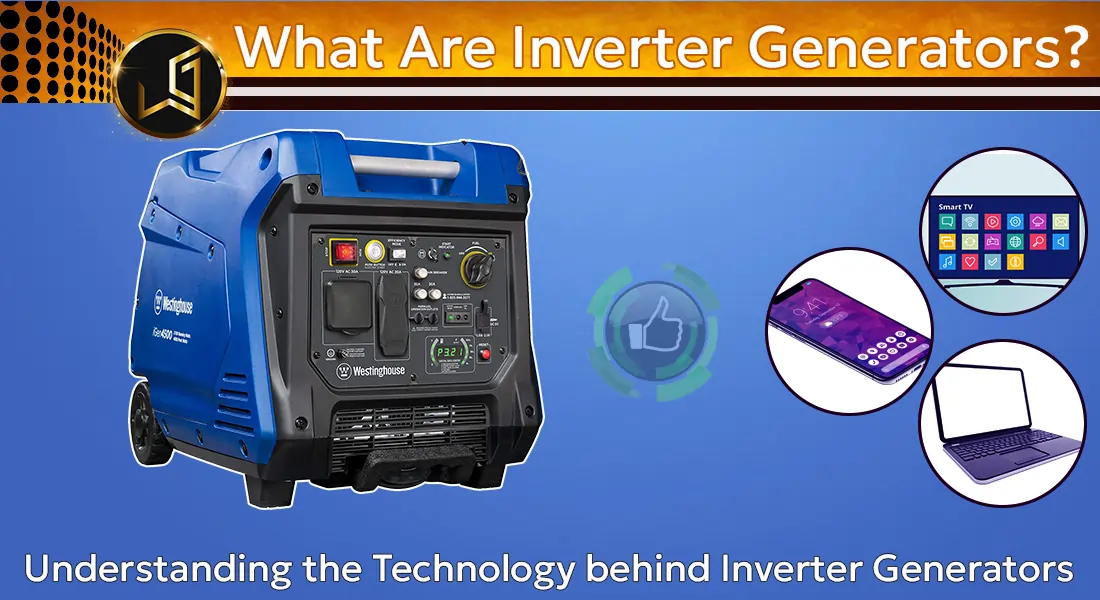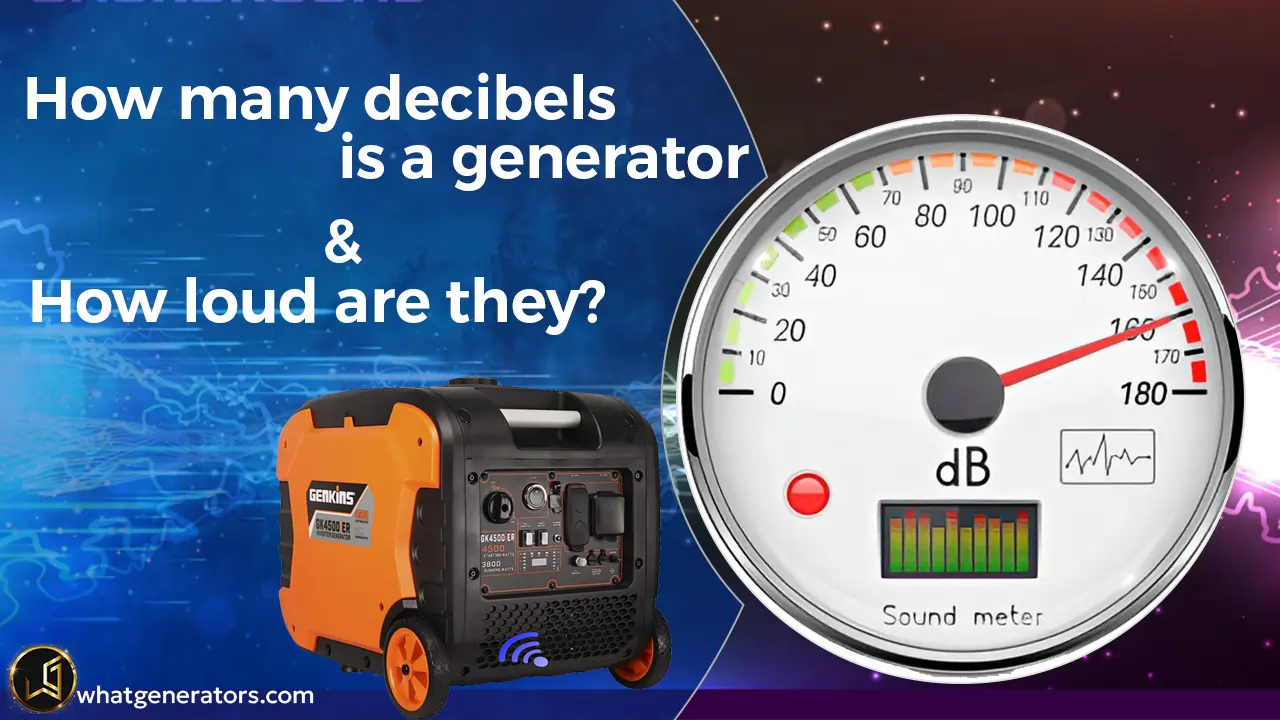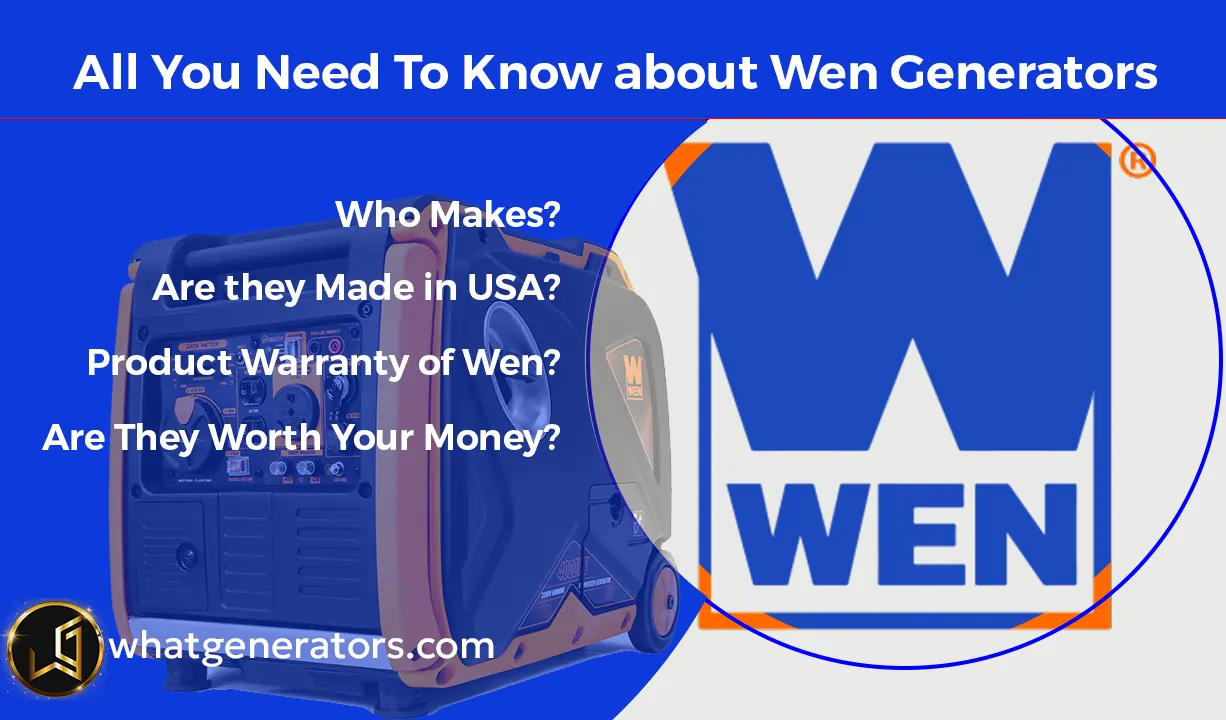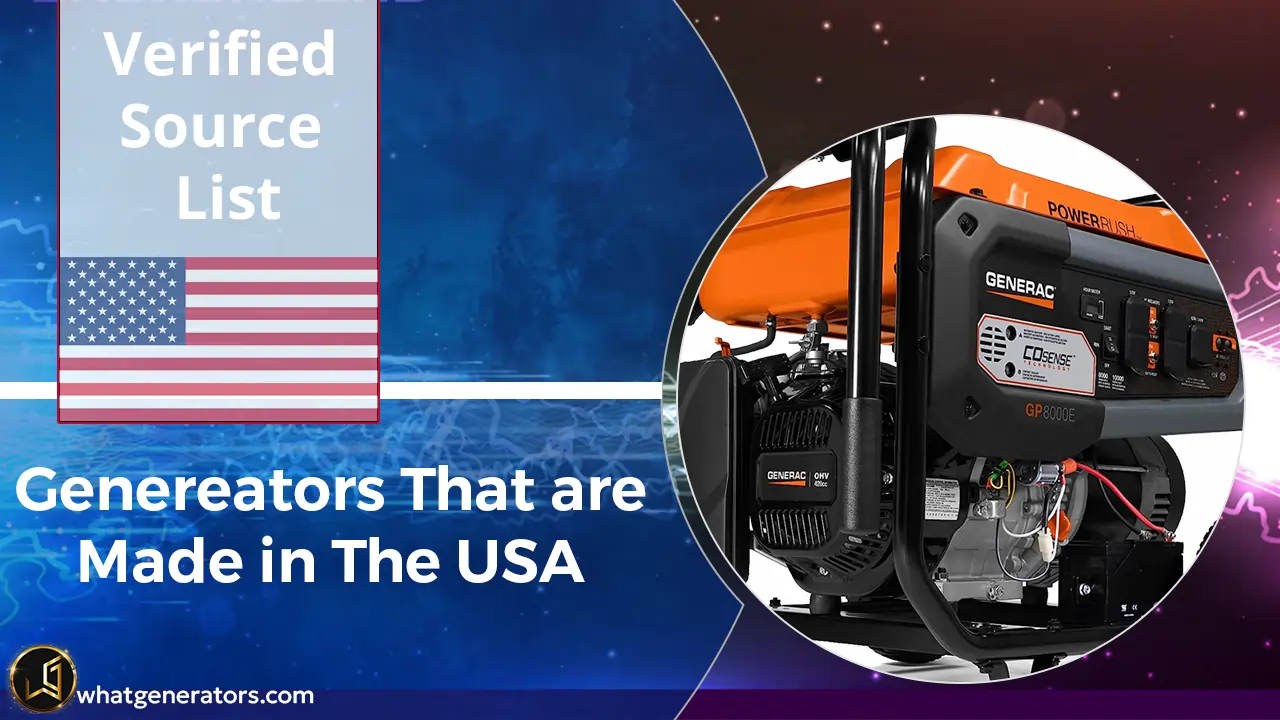
Inverter generators are a game changer for portable power sources. Discover the advantages and disadvantages of using them, their applications, and how to choose the best one to cater to your needs. In simple words, let’s understand what are inverter generators.
In recent years, inverter generators have captured the attention of both homeowners and industry professionals alike. These innovative devices have transformed the realm of portable power, offering a myriad of benefits compared to traditional generators.
But, are they all they’re cracked up to be? In this comprehensive guide, we will explore the pros and cons of inverter generators, their common uses, and benefits, as well as some top picks in the market.
Understanding the Technology behind Inverter Generators

An inverter generator works by first converting AC power to DC power using a rectifier, then inverting the DC power back to AC power using an inverter. The inverter is essentially an electronic circuit that switches the DC power on and off at a high frequency, creating a pulsating current which is then filtered and smoothed to produce a pure sine wave output.
The engine of an inverter generator powers a three-phase alternator, producing AC power. This AC power is then rectified to DC power, which is used to charge the generator’s battery and power the inverter. The inverter then takes this DC power and inverts it back into clean, stable AC power that can be used to run sensitive electronics such as laptops, smartphones, and other devices.
One of the key benefits of an inverter generator is its ability to produce very clean and stable power, with low total harmonic distortion (THD), making it ideal for powering sensitive electronics. In addition, the inverter technology also allows for greater fuel efficiency, quieter operation, and reduced emissions compared to traditional generators.
What are the Advantages of an Inverter Generator?
Fuel Efficiency:
Inverter generators are known for their fuel efficiency. They can automatically adjust the engine speed to match the power load, consuming less fuel when not in use. Traditional generators, on the other hand, operate continually at maximum power output, which consumes more fuel.
Portability:
Designed for convenience, inverter generators are typically more lightweight and compact than traditional generators. They are easily transportable and perfect for on-the-go use, especially for camping trips or any outdoor events.
Quiet operation:
Inverter generators are considerably quieter than their conventional counterparts. They not only have a lower operating noise level but also emit a softer, more tolerable hum, providing a more comfortable environment.
Quality of Power Output:
One of the key benefits of an inverter generator is the clean and stable power output they provide. They produce pure sine wave electricity, suitable for sensitive electronic equipment such as laptops, phones, and medical devices.
Environmentally Friendly:
Inverter generators emit fewer greenhouse gas emissions and are generally more eco-friendly. Additionally, they have built-in smart throttle technology that reduces the release of exhaust fumes by adjusting engine speed to match the power demand.
What are the cons of an inverter generator?
Higher initial investment: While inverter generators boast numerous advantages, their cost can be a drawback. They are typically more expensive than conventional generators, which may deter some potential buyers.
Limited power capacity: Inverter generators are generally designed for smaller power requirements. They may not be suitable for powering multiple heavy-duty appliances or large-scale construction equipment. However, some models can be connected in parallel to boost power capacity.
What are Inverter Generators used for?
Camping and outdoor events: Due to their portability, quiet operation, and fuel efficiency, inverter generators are ideal for camping trips, outdoor parties, tailgating, and other recreational activities where portable power is needed.
Emergency backup power: Many homeowners opt for an inverter generator as a backup during power outages. Inverter generators can safely power sensitive electronic devices such as computers, televisions, and mobile phones during emergencies.
Remote work locations: Inverter generators offer the power needed for remote job sites, construction sites, food trucks, and more, where access to electricity is limited or unavailable.
Factors to Consider When Selecting an Inverter Generator
When selecting an inverter generator, there are several important factors to consider. First, you’ll need to determine your power needs based on the appliances and electronics you plan to run.
Look for a generator with enough wattage to handle your peak power demands. Next, consider the noise level of the generator, particularly if you plan to use it in a residential area.
Inverter generators are generally quieter than conventional generators, but some models are quieter than others. You’ll also want to consider the size and weight of the generator, as well as its fuel efficiency and runtime.
Finally, look for additional features such as low oil shutdown, electric start, and automatic voltage regulation to ensure safe and efficient operation.
Steps for Powering Your Home with an Inverter Generator
- Choose a suitable inverter generator based on your power needs and budget. Make sure it has the necessary outlets to connect to your house.
- Place the generator outdoors, away from windows or doors to prevent carbon monoxide poisoning. Ensure that it is on a stable surface.
- Install an interlock kit or transfer switch to ensure that the generator can’t feed power back into the grid, which can be dangerous for repair crews working on power lines.
- Turn off all appliances and lights in your house to prevent a surge when you connect the generator.
- Connect an appropriately sized extension cord from the generator to the inlet plug on the transfer switch or interlock kit.
- Start the generator and let it warm up for a few minutes before turning on any appliances.
- Turn on the circuit breaker for the circuits you want to power (e.g., refrigerator, lights, etc.).
- Turn on one appliance at a time to avoid overloading the generator.
- Monitor the fuel level and oil level of the generator and refill as necessary.
- When you’re done using the generator, turn off all appliances and circuit breakers, then turn off the generator and unplug the extension cord.
What are the Best Inverter Generators?
Though inverter generators are available in a wide array of models, some highly recommended options include:
– Honda EU2200i: This generator is popular for its reliability, power output, and extra-quiet operation.
– Predator 8750: A compact and lightweight inverter generator, perfect for campers and road trippers.
– Westinghouse iGen2600: With parallel capabilities, this generator can be connected to another for increased power output.
– Generic GP3500iO: This option is well suited for larger power needs and offers an Open Frame Inverter (OFI) design.
Do thorough research and consider your specific power needs before making a purchase, as it can significantly impact your overall satisfaction with the product.
Summarization
Inverter generators have quickly become a popular choice for their efficiency, portability, and environmentally friendly nature. Despite the higher initial investment and limited power capacity, they prove to be a suitable choice for various situations, from camping trips to emergency backup power. Armed with this knowledge, you should have a solid understanding of the pros and cons of inverter generators, their wide-ranging uses, and how to choose a suitable model.
FAQ:
Can I use an inverter generator in wet conditions?
It is not recommended to operate any type of generator in wet or damp conditions as this can pose a significant safety hazard. However, some inverter generators are designed to be weather-resistant and can withstand light rain or moisture. Be sure to check with the manufacturer for specific guidelines on using your generator in wet conditions. You can also use a waterproof cover for your generator.
Are inverter generators louder or quieter than conventional generators?
Inverter generators tend to be quieter than conventional generators because they use advanced technology to produce power more efficiently and with less noise.
Can I connect multiple inverter generators together for more power output?
Yes, it is possible to combine multiple inverter generators in parallel to increase the overall power output. However, you should always follow the manufacturer’s instructions and guidelines for doing so.
Are inverter generators safe to use indoors?
Never, it is not recommended to use any type of generator indoors, as they all produce carbon monoxide gas which can be lethal in enclosed spaces. However, if you must use an inverter generator indoors, make sure it is placed in a well-ventilated area and follow all safety guidelines.
Are inverter generators more expensive than conventional generators?
Yes, Inverter generators are generally more expensive than conventional generators due to their advanced technology and greater efficiency. However, they can save you money in the long term by using less fuel and requiring less maintenance.
How do I maintain my inverter generator?
To maintain your inverter generator, be sure to keep it clean and dry, change the oil and air filter regularly, and follow all manufacturer instructions for storage and operation.
What are the benefits of using an inverter generator?
Inverter generators offer clean and stable power for sensitive electronics, are more fuel-efficient and quieter than traditional generators, and are typically lighter and more compact.

![Complete Guide: What Are Inverter Generators [Within 10 Minutes]](https://whatgenerators.com/wp-content/uploads/thumbs_dir/What-Can-a-7500-Watt-Generator-Run-q7kaglognkri5t2ugj0240xdzrdpgpb6fixxpjuou4.webp)
![Complete Guide: What Are Inverter Generators [Within 10 Minutes]](https://whatgenerators.com/wp-content/uploads/thumbs_dir/Predator-6500-Watt-Generator-q7nz5if2w1zqsocnnvfo737qr4loh6b5j16be32xbw.webp)




